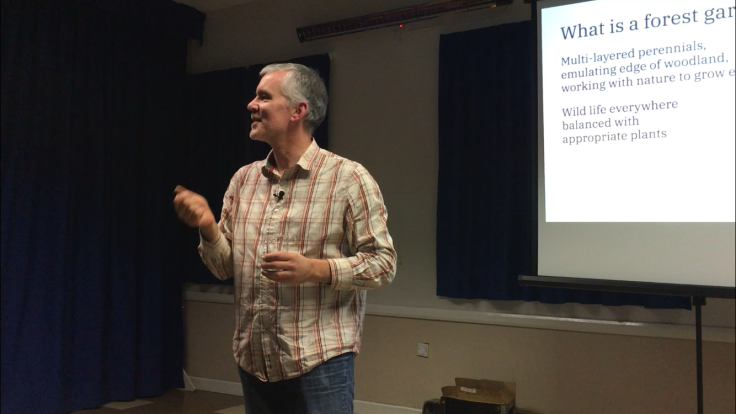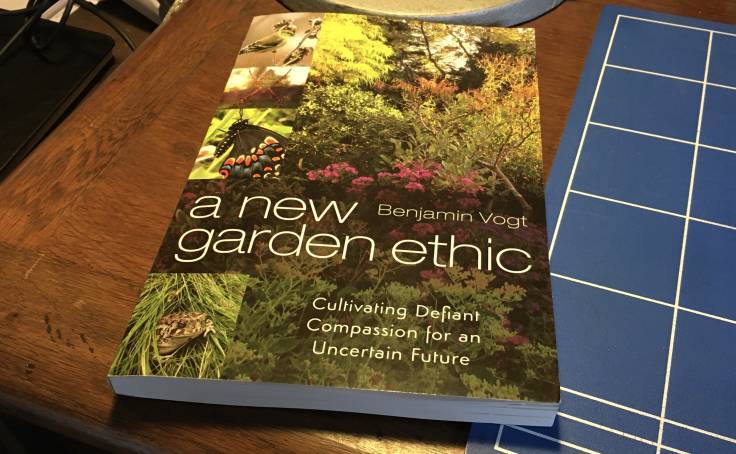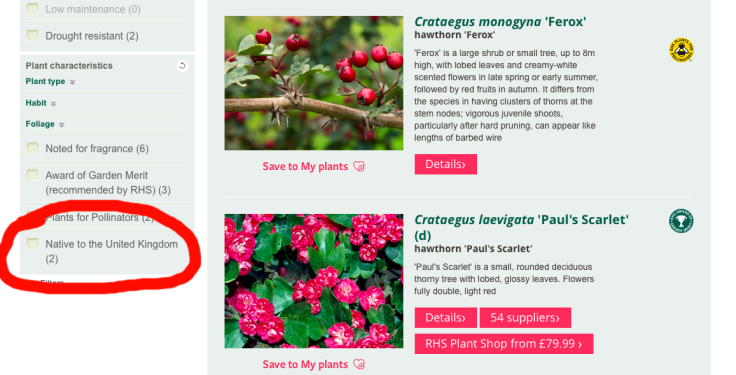
Forest gardening: it’s most definitely not all about me
I gave a talk to Llangwm Gardening Club about The Smaller Forest Garden. I digressed onto Native Plants and the Climate Emergency. Oops.
My talk on The Smaller Forest Garden for Llangwm Gardening Club seemed to go down well (slides here: forestgarden.wales/talks/smaller). I love sharing forest gardening ideas and perspectives with other people.
What I have found though is that I am increasingly drawn to political and environmental activism, not because I’m that way inclined (I’m a staunch non-committed individualist by nature) but because we are in a Climate Emergency in an age of Mass Extinction.
This is really not my opinion, it’s a scientific fact. Research from 2017 indicates we could exceed the 1.5°C limit by 2026. Trust me, we don’t want to go above 1.5°C. In the UK, 15% of species under threat of extinction.
If we don’t change direction, we’ll end up where we’re going.
But what can I do? I’m glad you asked in such a rhetorical fashion:
- Switch to a plant-based diet
- Stop flying
- Vote tactically for a Green New Deal
- Garden thoughtfully for wildlife

My profoundly important copy of ‘A New Garden Ethic’
I’m in the midst of reading A New Garden Ethic by Benjamin Vogt and it’s a challenging and vital book. If we garden with native plants, we support a wider range of fauna that has co-evolved with the plants, and the garden can become a way to connect with nature, our surroundings, and our selves.
It is challenging for me, because so many forest garden plants are non-native to the UK (apples, pears, Autumn Olive, Turkish Rocket etc.). But there is the space to incorporate native plants more fully into a forest garden with some careful thought. For example, I’ve recommended native Common Barberry as a hedging plant for a client and I’ve planted Teasel and I’m propagating Guelder Rose and Sea Buckthorn for more hedging.
If you need help, the RHS Plant Finder has a native filter for the UK, and the Biological Records Centre has a Database of Insects and their Food Plants, which makes for fascinating reading (Sea Buckthorn is a host for 34 insects!)

The RHS Plant Finder has a Native filter for the UK
So, get out there and garden inclusively, for everyone and everything! 🙂